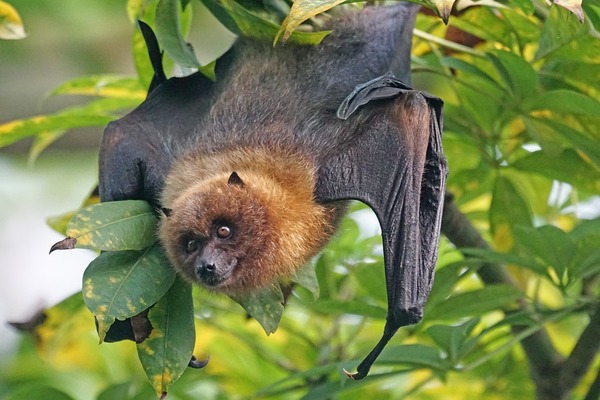
By Jess Baker
A little red flying fox found in a Warwick home has tested positive for a virus often fatal to humans, Darling Downs Health has confirmed.
The bat was discovered dead at a private residence on 25 April 2021 and, after an assessment by a veterinarian, was sent for further testing.
Darling Downs Public Health Senior Medical Officer Dr Liam Flynn said the bat tested positive for Australian Bat Lyssavirus, which should serve as a reminder to the community not to touch bats.
“Bats should not be handled by members of the public under any circumstances, including if you come across a sick or injured bat, or even if the bat appears to be dead,” said Dr Flynn.
Dr Flynn said the positive result was notified to Queensland Health and relevant follow-up was undertaken by the Darling Downs Public Health Unit.
“We have been in contact with those people who reported the bat when it was found, and those who had contact with the bat and whether they were vaccinated,” Dr Flynn said.
“Once the bat was presented, it was only handled by trained and vaccinated carers.”
Cases of bat disease are becoming increasingly common in the Southern Downs and Granite Belt.
This year to date, there have been 10 cases of leptospirosis in the Darling Downs Public Health Unit area, which is nearly three times greater than the past five-year average.
Leptospirosis, though less fatal than Australian Bat Lyssavirus, causes severe symptoms in humans and can be life-threatening.
It spreads from animals to humans and can cause high fever, headaches, chills, muscle aches, vomiting, jaundice, diarrhoea, red eyes, and rash.
Dr Flynn said the recent increase in leptospirosis could be related to an increase in rodent activity in the local area.
“We have seen an increase in rodents, particularly mice, in areas around the Southern Downs and Darling Downs,” he said.
“Rodents, as well as other animals including livestock, pets and wildlife, can carry the Leptospira bacteria without showing symptoms.”
Dr Flynn said human infections are usually caused by exposure to an infected animal’s urine or excrement, or to contaminated soil or water, so the best way to avoid infection is by keeping good hygiene practices.
“There are additional steps that specific occupations like farmers, abattoir workers and vets can take to protect themselves from infection,” Dr Flynn said.
“However, on the whole, good hygiene practices like washing your hands before eating, discouraging mice from in and around your home, and keeping areas clean, are the best methods of prevention.”
Any person who finds a sick or injured bat is encouraged to contact the RSPCA on 1300 264 625 or a local bat care organisation.






